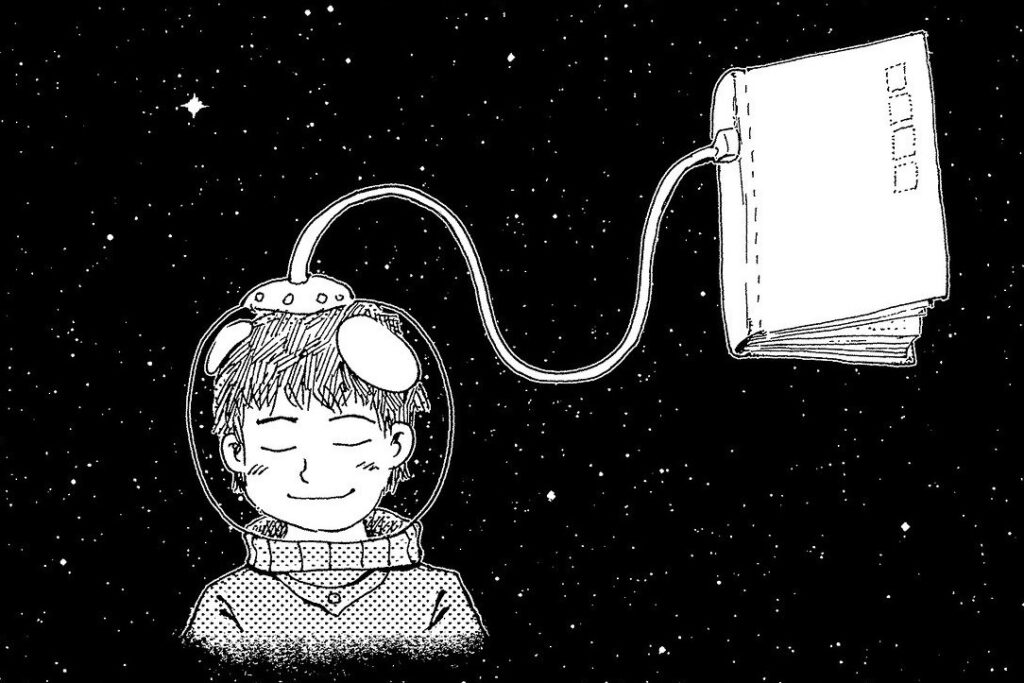A friend once told me she doesn’t enjoy reading fiction because she “doesn’t learn anything from it,” feeling it’s a waste of time. Ironically, I’ve used the same argument to explain why I don’t like reading non-fiction. I learn more from reading fiction than non-fiction books—now why is that?
For me, fiction provides a different kind of learning. It offers an emotional impact that makes me feel like I understand the world better, bringing a sense of fulfillment and inner serenity. Non-fiction books often exasperate me; a single valuable idea is drowned in pages of rambling, empty words. There are exceptions, of course, like journalist-authored books that follow a documentary style and understand the principles of storytelling (my favorite ones being The Hot Zone by Richard Preston and The Lost City of the Monkey God by Douglas Preston). Such non-fiction doesn’t make the account of events less “true” but achieves a deeper resonance when it captures the essence of its subject through a compelling narrative. If I want to learn bare facts, I’ll turn to textbooks or encyclopedias. But to truly understand the world, I reach for fiction.
The Therapeutic Role of Storytelling
No matter where the world takes you, fiction writing has one common goal: providing relief from the annoyance of the incoherent, discontinuous, and often-meaningless aspects of life. Storytelling is itself a form of therapy. Good fiction—whether horror, mystery, or romance—offers us a structured reality. Here, no detail is insignificant; everything must contribute to a satisfying resolution. Life’s a trickery labyrinth filled with random voids, missing links, and ambiguous endings, can feel like an unsolvable puzzle. The writer wields the power to create alternate realities where everything makes sense.
Our inherent need for coherence and logic often drives us toward religion, spirituality or conspiracy theories, which specialize in filling life’s gaps with “answers” from a higher power, cosmic force, or hidden authority. But reading fiction provides a more entertaining and less constrictive alternative to serve a similar purpose of tying up loose ends with tidy explanations
In stories, moments are carefully selected for their meaning, and every detail serves a purpose. The skill of storytelling lies in knowing what to exclude, transforming real life into fiction. Think back to a favorite TV show and how unsatisfying and frustrating it felt when a subplot went nowhere or hints remained unaddressed. Stories need every thread to lead somewhere, every detail to be significant, and every implication to fulfill its promise—otherwise, it should be removed.
Living in Simulated Worlds
From a neurological viewpoint, intelligence is the ability to represent and simulate actions abstractly. This is precisely what we do when reading or writing a story: we simulate scenarios, experiment with action patterns, and project outcomes across time and space. Reading fiction allows us to explore countless simulated worlds, experiencing the consequences of various actions in the comfort and safety of abstraction. Fiction also allows us to embody different viewpoints, extending our empathy and understanding in ways non-fiction often can’t achieve. It provides us with a model of life that fills gaps and answers questions, offering us a reprieve from reality’s incoherence.
Understanding Life Through Story
Ultimately, fiction satisfies our need to find meaning. In novels, we encounter characters who face struggles, make choices, and find clarity, giving us insights into our own lives. Fiction is more than an escape; it’s a journey into a crafted reality that mirrors our own. It offers coherence, empathy, and a reprieve from life’s inconsistencies, inviting us to find clarity within ourselves. This is why we read fiction: to connect, understand, and find a sense of completeness that life often lacks.

